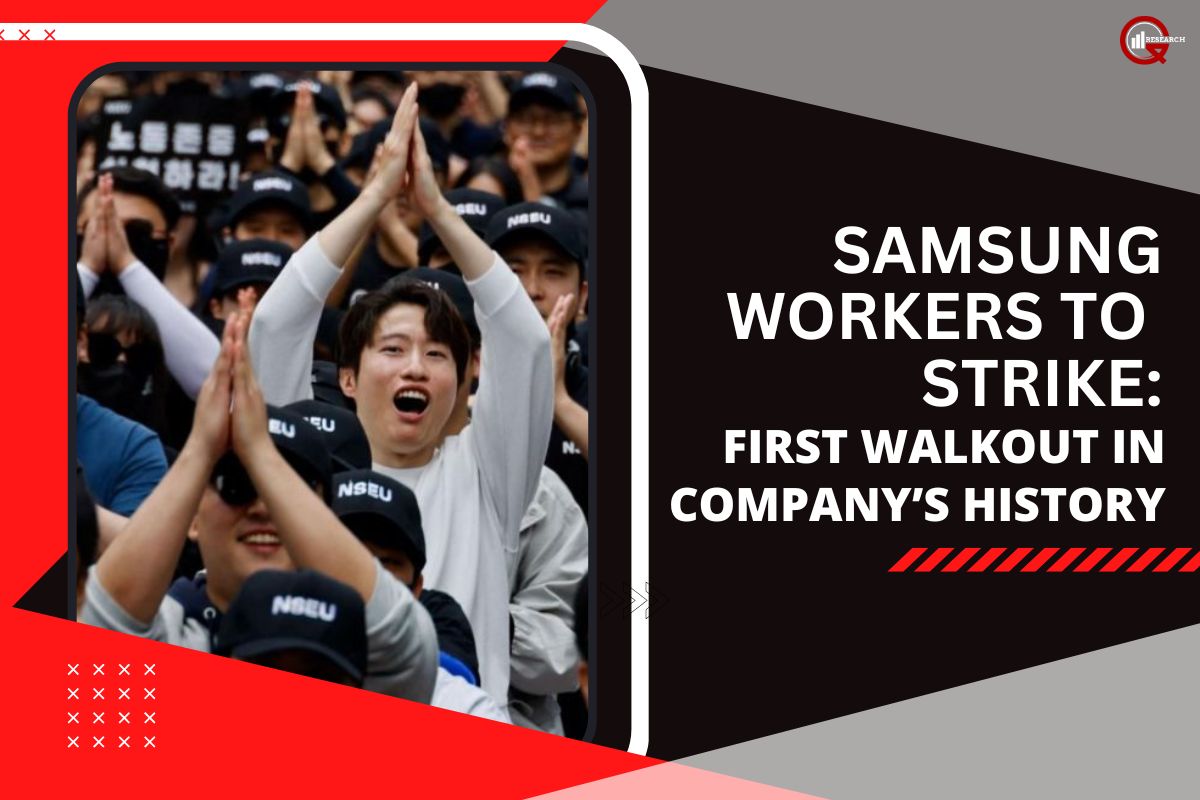(Source – BBC)
For the first time in its history, Samsung Electronics in South Korea is facing a strike. The Nationwide Samsung Electronics Union (NSEU), which represents tens of thousands of workers, announced a one-day strike set for June 7. This unprecedented move comes after unsuccessful negotiations regarding pay and bonus arrangements.
During a press conference streamed on its official YouTube channel, the NSEU revealed that 28,000 members, nearly a quarter of Samsung’s workforce in South Korea, would participate in the strike. Union representatives expressed their frustration, stating, “We can no longer afford to see a company that has no will to negotiate. We will fight for workers’ rights and interests.”
Demands In Strike for Fair Compensation and Transparency
Son Woomok, a union leader, highlighted that many NSEU members are employed in Samsung’s flagship semiconductor unit. In an interview with CNN, he emphasized the union’s demands for transparent and fair performance bonuses and wage increases. “There has never been a proper wage negotiation. It has always been carried out by announcing the outcome at the labor-management council, which does not include our union, and the company telling us to accept it,” Son said.
In response, a Samsung spokesperson told CNN, “The company remains committed to engaging in good faith negotiations with the union and is making every sincere effort to come to an agreement.”
Samsung’s Recent Struggles and Future Prospects
The world’s largest memory chipmaker has faced significant challenges in recent years. The COVID-19 pandemic led to a historic shortage of computer chips, followed by a slump in demand as global economic uncertainty dampened consumer appetite for electronics. In January, Samsung reported an operating profit of 6.567 trillion won ($4.8 billion) for 2023, marking its weakest annual performance since 2009. Additionally, Samsung lost its position as the world’s top smartphone maker.
Despite these setbacks, Samsung remains optimistic about the future, particularly due to the AI boom. The company expects a resurgence in demand for mobile devices, driven by the rollout of new AI-powered smartphones. Last month, Samsung reported a more than 10-fold increase in first-quarter operating profit, fueled by forecasts of high demand for AI and high-end chips. In this area, Samsung competes with industry giants such as Intel (INTC) and Taiwan’s TSMC.
Strategic Position in the Global Microchip Industry
The production of advanced microchips is heavily concentrated in Taiwan and South Korea. While Taiwan’s semiconductor industry is larger and more dominant, South Korea is determined to bolster its position in the global market. As one of the key players in this competitive industry, Samsung’s performance and strategic decisions will significantly impact the broader market dynamics.
The upcoming strike by Samsung’s workforce underscores the critical issues of fair compensation and transparent negotiation processes within the company. As the labor union and Samsung continue their negotiations, the outcome will not only affect the company’s internal operations but also have wider implications for the global tech industry.
The world will be watching closely as Samsung navigates this challenging period, balancing its commitment to workers with its strategic goals in the rapidly evolving technology landscape.






